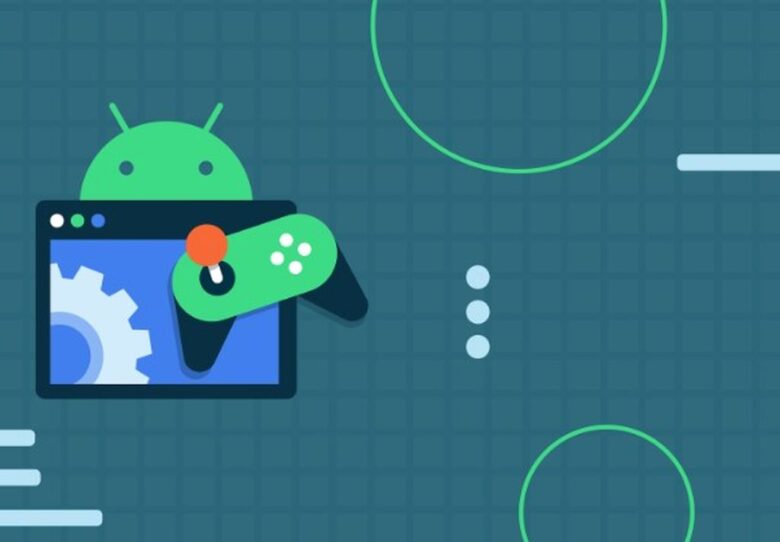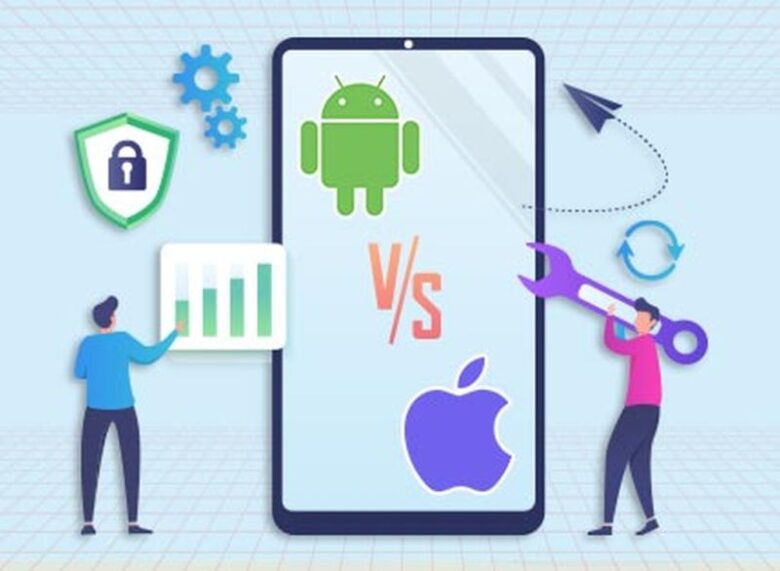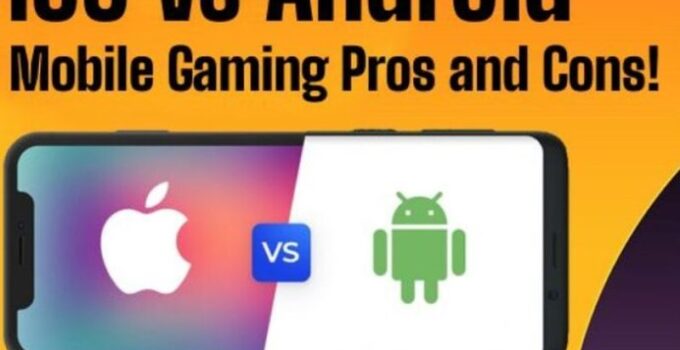With the ever-increasing popularity of mobile gaming, both iPhone game development and Android game development have become integral parts of the thriving mobile gaming industry. As the two dominant mobile platforms, iOS (iPhone) and Android offer unique opportunities and challenges for game developers.
Developing games specifically for these platforms, with the expertise of companies like KevuruGames, allows developers to tap into the vast user bases and take advantage of the distinct features and capabilities each platform offers. In this article, we will explore the world of iPhone game development and Android game development, highlighting their differences, strengths, and potential considerations for developers looking to create engaging and successful games for these platforms.
Let’s examine the pros and cons of developing games for Android and iOS.
Android Game Development

Source: pinterest.com
Pros:
- Market Share: Android holds the largest market share globally, providing a larger potential user base for game developers.
- Device Diversity: Android is available on a wide range of devices from various manufacturers, offering developers a broader audience to target.
- Flexibility: Android allows for more freedom and flexibility in terms of game development, customization, and integration with third-party tools and libraries.
- Publishing Ease: Publishing games on the Google Play Store is relatively straightforward, with fewer restrictions and a less stringent review process compared to iOS.
Cons:
- Fragmentation: The fragmentation of Android devices and operating system versions can lead to compatibility issues, requiring additional testing and optimization efforts.
- Revenue Generation: While Android has a larger user base, iOS users tend to spend more on apps and in-app purchases, resulting in potentially lower revenue generation for Android games.
- Security Concerns: Android devices can be more susceptible to malware and security threats, requiring developers to implement robust security measures in their games.
iOS Game Development
Pros:
- User Engagement: iOS users tend to be more engaged with their devices, leading to higher user retention and longer play sessions.
- Monetization Potential: iOS users are known to spend more on apps and in-app purchases, making iOS games more lucrative in terms of revenue generation.
- Quality Control: The stringent review process of the Apple App Store ensures higher quality standards for games, providing a level of credibility and trust for users.
- Hardware Optimization: Apple’s tight control over hardware and software integration allows for optimized performance and consistent user experiences across iOS devices.
Cons:
- Limited Device Range: iOS games are exclusive to Apple devices, which narrows the potential market compared to Android’s broader device diversity.
- App Store Restrictions: Apple’s strict guidelines and policies may limit certain creative or innovative game concepts, requiring developers to adhere to specific guidelines.
- Development Tools: iOS game development typically requires the use of Apple’s development tools and programming languages, which may require developers to learn new technologies.
Development Tools and Resources

Source: freepik.com
The Android and iOS platforms are both highly developed, with a wealth of development tools available to developers. However, there are some differences between the two that you should be aware of before deciding which platform is best for your game.
IDE/IDEs: Integrated development environments (IDEs) are software packages that allow you to write code and build apps on your computer without having to write everything from scratch. Android Studio is an IDE specifically designed for Android development; Xcode is Apple’s IDE used for iOS apps. IDEs provide many other features as well as code editing capabilities, for example, they may include debugging tools or visual designers that let you see how your app will look before it runs in real-time.
SDK/SDKs: Software Development Kits (SDKs) contain all the tools needed for creating an app they include things like libraries that let programmers access hardware functions like GPS or Wi-Fi connectivity through their computers instead of directly accessing them through phones’ operating systems themselves; compilers that convert source code into executable programs; packaging programs so developers can easily distribute their finished projects online; documentation explaining how everything works together; etcetera ad infinitum!
Monetization Options and Strategies
Monetization Options. The monetization options for your game will depend on the type of game you’re creating. Some games are free to play with in-game purchases, while others are paid apps that offer in-app purchases. A third option is a free-to-play title with ads (also known as a “free-to-play ad model”).
Monetization Strategies. Your strategy for making money from your app will depend on what kind of game you build and how much time you have available to work on it each week or month!
User Demographics and Behavior

Source: freepik.com
When it comes to the user demographics and behavior of Android and iOS users, there are many differences. Android users tend to be younger, more affluent and more likely to play games on their phones. In contrast, iOS users are older than average and less affluent as well as being more likely than Android users (41 percent) to play games on tablets rather than smartphones (38 percent).
Market Trends and Future Considerations
If you’re looking to develop a game and reach the most users, Android and iOS are your best options. As of 2018, these two operating systems account for more than 90% of all mobile devices in use worldwide.
These platforms are also constantly evolving as they compete with each other to add new features and capabilities. For example, Google recently announced that Android Q will include support for foldable devices, a major development since it allows developers to create app that work on both traditional phones and tablets as well as new form factors like foldable phones (which can be used like a tablet but folded up into something resembling a wallet).
It’s important to keep up with these trends so that you can make sure your app meets user expectations when it comes out on those platforms later this year!
Conclusion
In summary, Android game development offers a larger market share and device diversity, with more flexibility in customization. However, it can be affected by fragmentation and security concerns. On the other hand, iOS game development provides higher user engagement, monetization potential, and optimized experiences but is limited to Apple devices and subject to stricter guidelines. Developers should carefully consider their target audience, revenue goals, and development preferences when choosing between Android and iOS game development.




